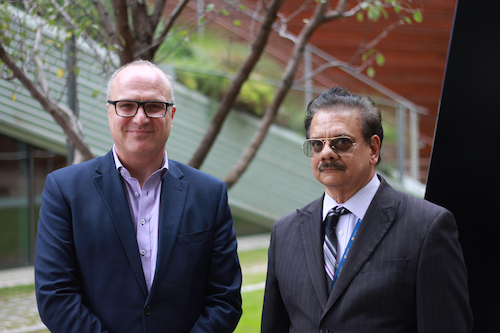
The high cost of financial planning services in Australia is preventing lower socio-economic groups from accessing advice that could greatly improve their financial security - particularly in retirement - a new University of South Australia study shows.
Professor Chandra Krishnamurti and Lecturer in Financial Planning and Director of GAP Financial, Geoff Pacecca, investigated the effect regulatory reform has had on the cost of providing financial advice and the impact this has had on lower income groups.
Of the lower income consumers in the study who have never accessed financial advice, more than 85 per cent believe there is no value in doing so, with current costs of advice more than double what most people from this group are prepared to pay.
"There is strong evidence from previous research that access to financial planning advice promotes self-sufficiency and improves financial wellbeing, leading to increased financial stability in retirement," Prof Krishnamurti says.
"Our study suggests that current costs of financial planning lock many people from lower socio-economic groups out of receiving advice, which reduces their financial wellbeing, places a greater burden on pension support, and may contribute to financial inequality in society."
The study - which was funded by Magellan Asset Management, Centrepoint Alliance, the Financial Planning Association of Australia and the Financial Planning Education Council - suggests targeted policy support for financial planning could deliver significant benefits to lower income groups and improve efficiency in the financial advice industry.
"Our research indicates three clear avenues for improving uptake of financial advice among lower socio-economic groups," Prof Krishnamurti says. "These are: increasing awareness of the benefits, government rebates on advice fees, and a streamlined advice format for these groups."
The first of these mechanisms, Pacecca says, requires shifting the perception that financial planning is just about helping rich people with 'wealth management'. As an example, he points to one of his clients, a retired plumber and his wife.
"They have been clients for 11 years, and started with $179,000 in super," Pacecca says. "Their pension fund is now worth $232,000, even after the pension payments made over all that time - they cannot believe it. It was about adjusting the right levers for them at the right time, but these days it would be difficult for them to get financial advice.
"Examples like that demonstrate how financial planning can help people from all income groups to be more secure and comfortable, particularly in retirement, and we need to promote that message more widely," Pacecca says.
The second recommendation from the report is the introduction of a government rebate for initial advice fees for low-income earners of retirement age.
"There was strong support - from both consumers and financial planners - for the idea of a government rebate for initial advice fees," Prof Krishnamurti says. "If this rebate were targeted at consumers who are seeking retirement planning and superannuation advice, it could greatly improve the financial security of this group and reduce pressure on the age pension system."
In addition to reducing costs for consumers, a third recommendation of the report suggests it would also be possible to reduce costs for advisors by developing a streamlined advice format tailored to delivering retirement and superannuation advice for low-income earners.
"It would be possible to reduce compliance time - and thus cost - for financial advice providers by establishing a short-form statement of advice format for retirement-age people from lower income groups who are seeking retirement planning advice," Mr Pacecca says.
"Many people from this group have relatively low levels of complexity in their financial advice needs, so a short-form approach would help reduce costs while still delivering valuable advice."
The full version of the report, The impact of cost and access to financial advice for lower socio-economic consumer groups, is available for download on this link.






